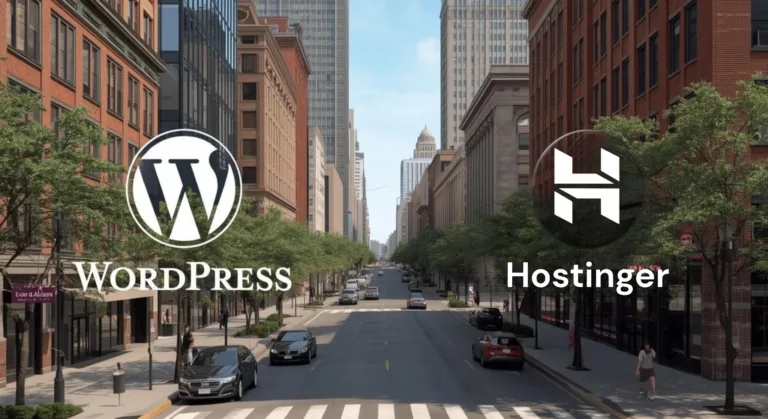Why Your Website Platform Choice is an Architectural Decision (Not Just a Design One)

When most businesses decide to build a new website, their first thoughts often leap to aesthetics: “What colors should we use? How will it look? What images will pop?” These are all valid design considerations, of course. But what often gets overlooked, to the detriment of long-term success, is the foundational technology underpinning it all: your website platform architectural decision.
Choosing your CMS (Content Management System) or underlying framework isn’t merely a design preference; it’s a strategic architectural decision that impacts everything from performance and security to your ability to grow and adapt in the future.
Let’s unpack why this architectural perspective is so crucial.
Performance: The Architectural Choice for Speed & Scalability
Imagine a beautiful building with a shoddy foundation. No matter how stunning the facade, it won’t stand the test of time or a strong wind. Similarly, a visually appealing website built on a poorly chosen or optimized platform will crumble under the weight of traffic or complex features.
- Loading Speed: Different platforms handle code, databases, and assets differently. Some are inherently lighter and faster (e.g., custom code, headless CMS), while others (like heavily templated builders) can be sluggish due to excess code. Your website platform architectural decision directly influences how quickly pages load – a critical factor for user experience and SEO.
- Scalability: Will your website handle a sudden surge in traffic from a viral campaign or holiday sales? Can it easily integrate new features as your business grows? The platform’s architecture determines its ability to scale horizontally (handle more users) and vertically (add more functionality) without breaking down.
Security: A Foundation for Trust & Protection
Your website isn’t just a marketing tool; it’s a valuable business asset, often containing sensitive customer data or proprietary information. The underlying security architecture of your chosen platform is paramount.
- Vulnerability Surface: Popular platforms like WordPress have large communities but also attract more malicious attacks. However, their robust ecosystems also mean quick security patches. Less common platforms might seem safer by obscurity but could lack critical security updates.
- Built-in Features vs. Add-ons: Does the platform offer robust built-in security features, or do you rely heavily on third-party plugins that might introduce their own vulnerabilities? Understanding how security is architected within the platform is key to protecting your business from data breaches and cyber threats.
SEO: Optimizing Your Website’s Digital Footprint
You can have the most beautiful website in the world, but if search engines can’t find it, neither will your customers. A platform’s architecture profoundly affects its SEO capabilities.
- Clean Code & Structure: Search engines love clean, semantic code. Some platforms generate bloated, convoluted code that makes it harder for crawlers to understand your content.
- Customization for SEO: Can you easily implement SEO best practices like custom meta descriptions, structured data, canonical tags, and fast page speeds? Platforms with flexible architecture (like WordPress with Yoast, or Drupal) offer far greater control over these crucial elements than highly restrictive website builders. Your website platform architectural decision needs to support your SEO strategy.
- Mobile-Friendliness: Google prioritizes mobile-first indexing. Your platform’s ability to render flawlessly and quickly on all devices is an architectural requirement, not an optional extra.
Future Development & Longevity: The Long-Term Architectural View
Your business isn’t static, and neither should your website be. Your platform choice is a long-term investment.
- Flexibility & Customization: Can your chosen platform adapt to new business needs? If you suddenly need an e-commerce store, a client portal, or integration with a new CRM, will your platform support it, or will you face a costly, time-consuming migration?
- Community & Support: A platform with a thriving developer community (like WordPress or Drupal) ensures ongoing updates, security patches, and a pool of talent for future development.
- Cost of Ownership: While a cheap-to-build platform might save money upfront, its architectural limitations could lead to significant “technical debt” down the road – expensive and difficult modifications, migrations, or security fixes that outweigh initial savings.
Make the Right Architectural Decision with Marvelous Developments
At Marvelous Developments, we understand that your Website Platform Architectural Decision is one of the most critical choices you’ll make for your digital presence. We go beyond just pretty designs, focusing on building a robust, scalable, and secure foundation that will serve your business now and far into the future.
Whether you’re a startup needing a lean, mean machine or a growing business requiring complex integrations, we’ll help you navigate the architectural nuances of platforms like WordPress, Drupal, and custom solutions to ensure your website is a strategic asset, not a liability.
Ready to build a website with a solid foundation?
Contact Marvelous Developments Today for a Consultation!






